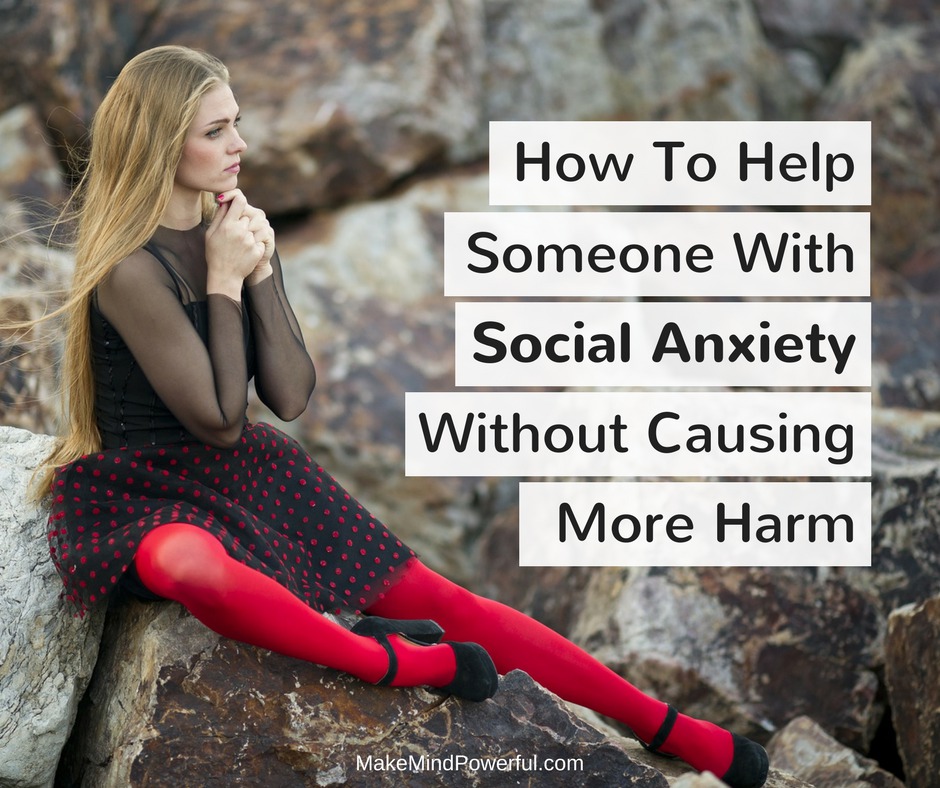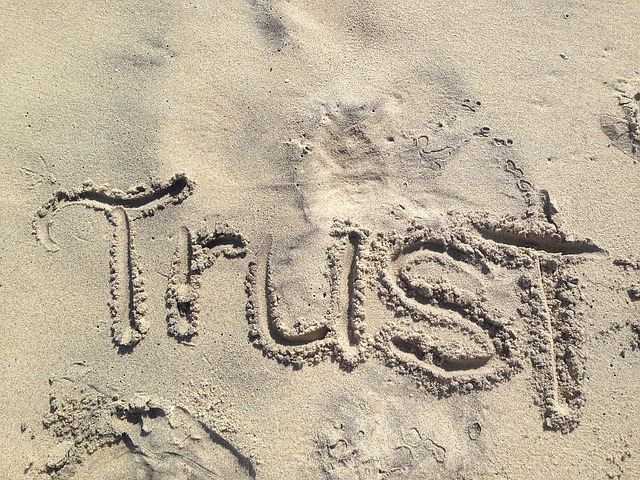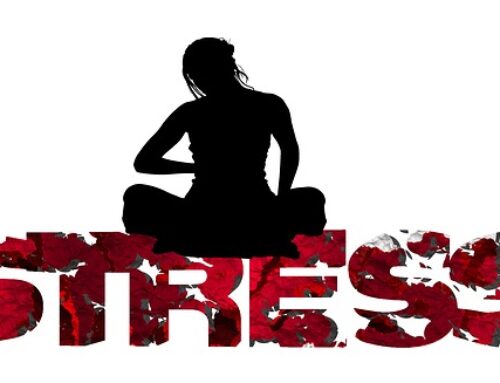
I’m not a professionally trained therapist, nor do I have any medical qualifications where social anxiety is a concern. The only thing that gave me the authority to write this article, is the fact that I’ve suffered from social anxiety for at least 15 years. At my worst, I wouldn’t imagine of sharing my own thoughts like this, for fear of being judged.
It’s been a year since I’ve beaten social anxiety. I’ve done crazy things like public speaking that I’ve never thought possible. I thought I could help you to help your loved ones overcome their social anxiety. This article is not going to be only a handful of remedies, but a comprehensive guide that gives you an insight to the nature of this common mental issue as experienced by myself.
How Would You Know If Someone Is Struggling With Social Anxiety?
Just because your loved one chose to spend times alone on the weekend instead of attending parties doesn’t mean he or she has social anxiety. It’s also too early to come to conclusion when a person could be enjoying a deep conversation with you but grew cold and silent in group meetups.
Social anxiety is often confused with introversion. Introverts don’t speak much in group gatherings because they don’t see the value in small talks. On the other hand, people with social anxiety are afraid of being judged in their interactions.
While it’s hard to read the mind of someone who’s avoiding social events, social anxiety could manifest itself physically. So watch out for these tell-tale physical signs of social anxiety in your loved ones.
- Blushing – When someone is suffering from social anxiety, they may blush when they speak, especially with strangers or someone of higher authority. It’s a particularly embarrassing situation for them and it’s not something that you should joke with.
- Trembling – Social anxiety sufferer may actually tremble when they speak. It’s a physiological symptom beyond their control, and they hope no one would notice or point it out.
- Hyperventilate – In the middle of their conversation, people with social anxiety may actually hyperventilate as panic overwhelmed them. You could notice that they have to take a deep breath before they can continue talking.
Many people with social anxiety thought they are just painfully shy and didn’t seek any help until years later. As for me, I didn’t even know I was struggling with social anxiety until I was dealing with another mental issue, depression. So, you need to reach out delicately to those whom you intend to help.
What Not To Say To Someone With Social Anxiety

Due to the avoidance behavior that’s cultivated over time or chemical imbalance affecting their cognition, people with social anxiety tend to interpret words in a way that it will further deal blow to their self-esteem. So, here are some of the words to avoid if you are seriously trying to help someone with social anxiety.
1. “It’s All In Your Head”
It’s particularly insulting for people with social anxiety when you’re implying that it’s a condition that’s bred out of pure imagination. It’s not. In fact, if there’s a choice, no one would choose to have social anxiety ruining their social life. If there’s any truth to this statement, it’s the sad fact that chemical imbalance has affected how their brain operates.
2. “Why Can’t You Speak Up?”
People struggling with social anxiety are already ashamed by their incapability of socializing like others without being overwhelmed by fearful thoughts. At times, you may be frustrated by their silence at social meetups, but if you’re to vent your frustration at them, I can assure you that it’s going to push them further into social anxiety. Not only that, you’ll find yourself losing trust with them.
3. “You Should Be More Positive.”
If mere positivity could help, no one would be suffering from social anxiety or any anxiety at all. Those who struggled with social anxiety are unable to derive positive energy by themselves. Instead of just shoving meaningless words in vain, the better way is to be the source of the positive energy yourself through uplifting actions.
4. “What’s Wrong With You?”
Some people are aware that they are struggling with social anxiety. Some are confused why they are experiencing all the fears and physical shivering when they are in a conversation. In a way, they know that something is out of place and they do not need to be reminded of that.
5. “Can’t You Smile At All?”
For one thing, people with social anxiety are pretty true to their emotion. They don’t put up fake smiles when they don’t feel like it. But there’s another reason of not smiling. Social anxiety made them being super conscious of how their smile may catch the attention of others, something that they are trying to avoid at all cost.
Always be careful with the choice of words you use with people struggling with social anxiety. They have no control over their perception at their current state of mind. Having a good intention with the wrong choice of words could cause more harm than good.
What Does It Take To Help Someone With Social Anxiety

1. Empathy
If you’ve never suffered social anxiety, you’ll never know how it feels even if I could explain precisely what it’s like. That’s probably what’s on the mind on those whom you are trying to help. They don’t think you’ll ever be able to understand the struggle that they are going through.
The first mistake that you could make is to pretend that you do. Don’t do that. Instead, let them know that while you have no idea of the mental battle going through their mind, you share the pain with them. A person struggling with social anxiety needs non-judgemental support, instead of being told off for their lack of social skills in life.
2. Patience
How long does it take to overcome social anxiety? There are so many variables that could put the figure at 20 weeks to 10 years or more. I’ve never been treated with any form of therapies for 15 years of struggles because I thought I was just overly shy. I showed the slow progress that spreads out over years on my own.
You need to be mentally prepared that this is not something that can be achieved in a couple of weeks. A person develops social anxiety after a certain period of avoidance behavior that changes their brain structure. It will take more than a couple of weeks for the mind to relearn and form new neuron pathway in the brain.
3. Trust
You can find that people with social anxiety have trust issues and rightly so. Common causes of social anxiety have been associated with bullying and emotional abuses, and some of the perpetrators are people they trusted.
You’ll need to constantly prove yourself with actions to gain the trust of those who suffered social anxiety. And as you may already know, trust is hard to build but easily broken. If you said you’ll accompany them to a gathering, make sure that you show up on time. A couple of minutes is enough for a social anxiety sufferer to panic and decides to head back home.
4. Be Positive
It can be emotionally taxing trying to help someone out of social anxiety. It’s a constant struggle between positive energy and negative ones. You have to wear the many hats of cheerleader, counselor, friend, clown, and motivator that you’ll end up drained yourself.
Remember that you can’t pour from an empty cup. It’s important to take care of your own energy level and never fail to replenish them. My favorite is by energy healing and I relied on Christie Marie Sheldon’s energy healing session to keep my energy positive.
5. Calm
At times, it can be frustrating when you’ve done so much and get little progress. Or when the person whom you’re helping shows improvement, only to freak out in a certain social outing. Things can be pretty unpredictable when it comes to social anxiety.
You’ll need to keep an even temper and maintain your calm regardless of the situation. Refrain from lashing out even it seems almost impossible. How to help someone with social anxiety when you could be causing more harm with your temper? Some relaxing meditation music could calm our emotion effectively.
Is Getting To The Root Cause Of Social Anxiety Important?

So, is it important to fully identify the root cause of one person’s social anxiety to help to overcome it? A quick answer is no. But identifying the causes is still important as you wanted to prevent a relapse after recovering from social anxiety.
The causes of one person’s social anxiety often date back to years before they show any symptoms of social phobia. Through the years it has altered the neuron path in a person’s brain, or in another popular term causes “chemical imbalance”.
Knowing The Causes Is Important In Staying Out Of Social Anxiety
Tracing out the root cause, revisiting the scenario and facing your fear doesn’t do any good in changing the neuron pathway. In that sense, I don’t think knowing the root cause(s) is of any help to overcoming social anxiety.
With that said, knowing what causes social anxiety is important because you want to ensure the person you’re helping is no longer exposed to the conditions when he or she is undergoing therapies to overcome their social anxiety.
You’ll also want to take note that self-isolation, a result of social anxiety, could also be the cause that traps one perpetually in social anxiety. This is when a trusted companion comes in handy to lift a person out of the negative energy they are engulfed in.
Practical Methods In Helping Someone With Social Anxiety
Is it possible to overcome social anxiety without by yourself? I wouldn’t discount the possibility of doing that. But it’s going to be tough and causes unnecessary suffering. I spent 15 years in that struggle without knowing what I was suffering or reaching out for help.
There are remedies today that could change a person’s socially anxious behavior and alter their neuron pathway when practiced consistently. I’m going to list down a few that are known to be effective and I’ll be honest if I’ve tried them personally.
1. Cognitive Behavioral Therapy
Cognitive Behavioural Therapy(CBT) is one of the most recommended therapy for social anxiety. It’s a psychotherapy that’s based on the model that it’s not the thoughts but the meaning that we gave to them that actually upsets us. It placed importance that our chain of negative thoughts is a behavior formed from our childhood and become our instinctive reaction later in life.
Psychotherapists who practiced CBT will customize the therapy to suit the condition of their patients. You’ll want to think of this treatment as a form of learning new behaviors to replace existing non-supporting behaviors. In doing so, it changes the neuron pathway. Here’s a link to a more in-depth article on CBT.
Personally, I’ve never tried CBT. Because getting a therapist is expensive in my local area. If time and money is not an issue, to seek out a psychotherapist trained in CBT to help your loved ones. As for me, I have to resort to other alternatives that I’ll share next.
2. Energy Healing
While professionals are busy debating the effectiveness of energy healings, I had my first session with Christie Marie Sheldon that led me to explore the possibilities of raising our energy every single day to drown the negative gloom of social anxiety.
It’s a session where you’re guided through a series of visual imagination that causes unexplainable of feel good factor that lasted for hours, if not days. Depending on the type of energy healing, one may even uncover limiting beliefs that are keeping themselves in social anxiety.
Placebo effect or actual transformation? I have no idea, except that going through the energy healing sessions is pivotal in my eventual triumph over social anxiety and enjoying my first ever public speaking in my life. Christie Marie Sheldon’s Unlimited Abundance is what I’m still listening to regularly.
3. Mindfulness Meditation
Most articles mentioned how mindfulness meditation is effective in dealing with anxieties. But what most of them didn’t emphasize clearly is that mindfulness meditation is not going to get rid of social anxiety overnight. In fact, it is almost impossible for a person to meditate when they are highly anxious over a meeting the next day.
Again, having learned meditation at an early age, I do recommend your loved ones to meditate in their battle against social anxiety. The only advice is, meditate when they are not stressed out at the moment, and to find a great meditation teacher if possible. Think of mindfulness meditation as weight lifting for the brain. It’s a long term strategy for social anxiety.
Beware of the common misconception that meditation is about clearing your mind of all thoughts. That’s also the reason why people with anxieties stopped meditating. Instead of emptying a person’s mind, mindfulness meditation is a training for the mind to stop feeding negative thoughts energy. In a way, it’s detaching itself from negative thoughts.
4. Hypnosis
While this is not commonly mentioned in most overcome social anxiety guides, hypnosis has been particularly effective for me when I faced relapse of social anxiety. Yes, it does happen. Unlike what you commonly saw in Hollywood movies, clinical hypnosis is not about mind control or falling asleep.
The hypnosis that I’m talking about is recorded by experienced hypnotherapists who have real life experience in one to one treatment. By far, it’s the cheapest and most effective alternatives for me. You can check out my full experience here.
Like anything, it takes consistent hypnosis session to alter the neuron pathway in your brain. Unlike meditation which is self-reliant, hypnosis audio requires little effort on our part except to relax and listen attentively to the hypnosis audio. It has also been mentioned that hypnosis may also enhance the effect of Cognitive Behavioural Therapy.
5. Gradual Exposure
It’s pointless to meditate for hours or spent hundreds of dollars in therapies if a person faced with social anxiety is not exposed and encouraged to challenge situation they used to be afraid of. I found myself making the most progress when I’m taking actions in challenging myself with making phone calls or public speaking.
It may take a series of little steps before one who suffered social anxiety actually managed to accomplished what was once impossible. But it is important to get started and enhance the mental change brought by the therapies involved.
This is where you’ll want to shine as a trusted advisor and coach, to help the person overcome social anxiety by setting realistic and achievable goals. It is also your duty to encourage and motivate them to achieve those goals. And remember to celebrate every little win over social anxiety. It does great to keep the momentum going.
3 Things To Do While Overcoming Social Anxiety Is In Progress

1. Diet
It has been scientifically proven that certain types of food does help in regulating our mood and thus, anxiety. Here is a great list of food that’s great for the anxious mind. At the same time, be sure to keep him or her from foods that could aggravate anxiety such as caffeine and processed foods.
2. Workout
Working out regularly could help stabilize mood, as it produces endorphin, a hormone in the brain that reduces stress. You could start by encouraging him or her to take 10 minutes walk in the park, as studies suggested that’s the minimum required to relieve anxiety and depression.
3. Maintaining Positivity
Helping someone to overcome anxiety could be an emotionally draining process for both of you. Keeping a healthy level of positive energy could be decisive in enhancing the effect of therapies. At the very least, it will keep them occupied from obsessing over the effectiveness of the therapy itself.
Final Thoughts
Again, I would like to stress that I’m no professional therapist, but merely sharing my thoughts from the point of view of someone who has struggled with social anxiety for more than 10 years and eventually finding my way out of it. I’m not stressing that these methods that I suggested are superior to others, but merely what I believe may work for others as well.
It’s often mentioned that we all suffer social anxiety differently. But then again, there could be more similarities than we are aware of. I hope that you find this article of how to help someone with social anxiety useful. If so, please share out so that others could gain from my experience.
Read How I Finally Overcome 15 Years Of Social AnxietyDo you know anyone who suffered from social anxiety? Please share your story of how you help them deal with social anxiety.
Related Posts:
How Social Anxiety Is Slowly Killing Off Your Relationship
How To Build Self Esteem And Confidence To Defeat Social Anxiety
Why Self Isolation Traps You In A Vicious Cycle Of Social Anxiety
How To Survive A Job Interview And Ace It When You’re Feeling Anxious
How To Beat Social Anxiety And Thrive As An Introvert






Having had some experience myself with anxiety/panic attacks, I found your article very interesting. I fully agree that as a friend/relative please do your best to not be judgemental. You being there and offering support is the best thing you can do. Next best thing is to lead them toward general health. A great multivitamin from a local health store (not walmart). Recent research has me looking at iodine levels as a possible culprit in many people with general anxiety issues.
Hi,
Taking care of our general health is an important step to anxiety. I remember myself keeping an intensive workout schedule and eating healthy back then.
Cheers,
Kenny
I’m so glad I found this article! It’s extremely useful in understanding how to handle people better when they’re feeling that way.
I struggle with social anxiety as well, but I’m also very introverted which makes it more difficult because no one can tell when I’m anxious vs. just being my normal self.
I’ll definitely bookmark your site and best of luck to you!
Hi,
When you have got rid of social anxiety, the introvert in you will shine through with new found confidence. I think it’s hard to miss that.
Cheers,
Kenny
Great article! You have explained everything with details about social anxiety. I like that you have pointed out the solutions to this problem. I am happy that you’ve successfully overcame social anxiety. It is great that you’re sharing your methods of overcoming this disorder. Keep up the good work! What is your opinion on supplements like omega 3 and curcumin about social anxiety?
Hi,
Thanks for reading. Omega 3 and both curcumin are great natural foods that will help in boosting our brain in our fight against social anxiety.
Cheers,
Kenny
Hi Lee,
In this nice and comprehensive article you have really opened up my mind to what I thought I knew how to handle. You see, I have a teens’ class that I teach on Sundays and I more often than not misunderstand some of those elements that I see in some of my class members. Just last Sunday I even asked one member the question of why she couldn’t smile at all to any one in class. Now I know better, I’ll never handle social anxiety the same way in my class again.
Hi,
I’m glad that this article made you aware why some of us isn’t smiling, even when we wanted to.
Cheers,
Kenny